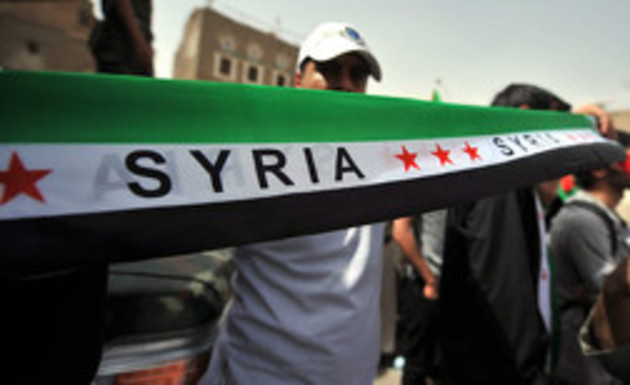Geneva pessimism

By Vestnik Kavkaza
Yesterday, the international conference on a peaceful resolution of the Syrian conflict, Geneva-2, began in Montreux. Two Syrian delegations are taking part in the conference – representatives of the official authorities and the opposition, as well as numerous mediators. However, there are few hopes of finding a way out of the crisis at the conference.
“The whole content of yesterday's initial meeting at the international conference on Syrian settlement Geneva-2 in Montreux demonstrated that none of the sides intends to make an agreement with others,” the head of the Center of Social and Political Studies, Vladimir Yevseyev, told Vestnik Kakaza. “Of course the fact that both sides of the conflict gathered in one hall is positive, but it is not a resolution of the conflict.”
The expert explained that the stumbling block is not the will of the official authorities or the opposition, but in the conditions which are established by equality of forces in the Syrian conflict. “First of all, while two main sponsors of the Syrian crisis, Iran and Saudi Arabia, don’t agree on restriction of financing Bashar Assad and the rebels, there will be no resolution for the Syrian crisis at all. Each of the sides spends $5 billion on the conflict,” Yevseyev said.
The second reason for the balance is that neither the national army nor the armed militants can win the war. “The Syrian national army is not able to mop up the armed opposition, while the opposition is not able to overthrow Bashar Assad,” the expert explains.
“There is also a third problem: if we conducted the most democratic election ever in Syria today, Bashar Assad would inevitably win the presidential elections, as the opposition has nobody to present as a candidate. The majority of the population is afraid of the Islamists’ coming and would vote for the current president. In this context, Bashar Assad won’t agree on forming a transitional authority which would gain real power, only imitation is possible,” Yevseyev is sure.
As for Tehran, Vestnik Kavkaza already reported, that the UN withdrew Iran’s invitation to Geneva-2 at the last moment. Yesterday Secretary General of the UN, Ban ki-Moon, stated: “Iran knows that the main aim of the conference is to discuss establishing of a transitional authority. Unfortunately, I didn’t get confirmation from the Iranian government that they would keep to it.”
Meanwhile, Vestnik Kavkaza’s correspondent in Israel, Peter Lyukimson, reports that Israel rejects the idea that it was involved in the revoking of Iran’s invitation to the conference and makes it clear that it was initiated by the USA and the Syrian opposition.
The conference is sparsely covered by the Israeli media and seems to be not really interesting for Israeli politicians. Vestnik Kavkaza tried to talk to some of them about the matter, but it appeared that neither the political nor the military leadership of Israel has a clear position toward the developments in Syria. On the one hand, doubtlessly Israel cannot support President Assad, its opponent; on the other hand, Israel understands that those who are fighting against Assad today can become a big threat for it in the future. Thus, Israel prefers a neutral position without involvement into the events (at least until its direct interests are touched on).
Ahead of the conference, the Directorate of Military Intelligence Aman reported that chances for an agreement between the opposition and Bashar Assad’s regime are zero, and one shouldn’t hope for changes in the context of the conference.
However, Russian Premier Dmitry Medvedev expressed “moderate optimistic” expectations about Geneva-2. He told CNN that the situation in Syria is first of all an internal problem of the country: “It is not a problem of the Russian Federation, it is not a problem of the United States, it is not a problem of Iran, it is not a problem of Saudi Arabia, and it is not actually a problem of the Arab world in the full extent, even though it touches on the situation in the Middle East… Syria is a complicated many-religious country; and if the balance is destroyed, we will have a society where people will fight against each other.”
5190 views





